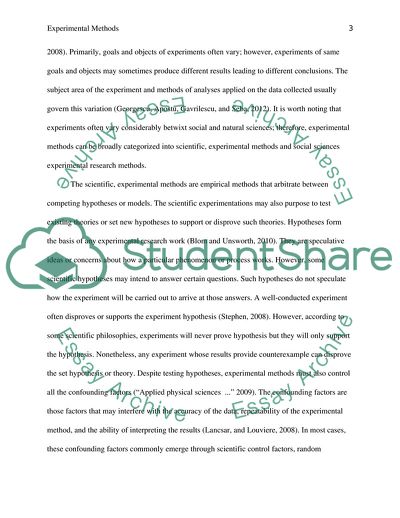Cite this document
(Experimental Methods Essay Example | Topics and Well Written Essays - 1250 words, n.d.)
Experimental Methods Essay Example | Topics and Well Written Essays - 1250 words. https://studentshare.org/psychology/1785848-experimental-methods
Experimental Methods Essay Example | Topics and Well Written Essays - 1250 words. https://studentshare.org/psychology/1785848-experimental-methods
(Experimental Methods Essay Example | Topics and Well Written Essays - 1250 Words)
Experimental Methods Essay Example | Topics and Well Written Essays - 1250 Words. https://studentshare.org/psychology/1785848-experimental-methods.
Experimental Methods Essay Example | Topics and Well Written Essays - 1250 Words. https://studentshare.org/psychology/1785848-experimental-methods.
“Experimental Methods Essay Example | Topics and Well Written Essays - 1250 Words”. https://studentshare.org/psychology/1785848-experimental-methods.


